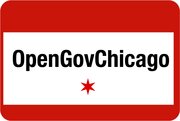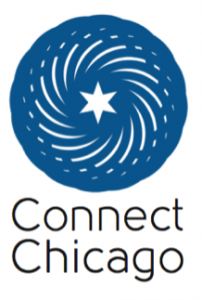 At OpenGovChicago this year, we’ve been focusing on learning about and helping grassroots groups that interact with official government functions. This time the focus was on Chicago Public Schools and Local School Councils. Local School Councils were first created in 1988 from the Chicago School Reform Act. Local School council members are elected and receive training from Chicago Public Schools. Local School Councils are elected boards that serve at each school. Contract and charter schools do not have Local School Councils. Local School Councils (LSC) are responsible for three main duties:
At OpenGovChicago this year, we’ve been focusing on learning about and helping grassroots groups that interact with official government functions. This time the focus was on Chicago Public Schools and Local School Councils. Local School Councils were first created in 1988 from the Chicago School Reform Act. Local School council members are elected and receive training from Chicago Public Schools. Local School Councils are elected boards that serve at each school. Contract and charter schools do not have Local School Councils. Local School Councils (LSC) are responsible for three main duties:
- Approving how school funds and resources are allocated
- Developing and monitoring the annual School Improvement Plan
- Evaluating and selecting the school’s principal
Local School Councils include the following members:
- 6 parents
- 2 community members
- 2 teachers
- 1 non-teacher staff
- school’s principal
- And in high schools, a student representative
To start off the meeting, we heard from Jill Wohl who is a former Local School Council member. Here’s her introduction:
@OpenGovChicago Greetings LSCers! How the Sun-Times promoted the first LSC elections in 1988. https://t.co/V2Nqox4ufl
— Steve Sewall (@stevesewall) March 6, 2015
The meeting then went on to a roundtable discussion regarding a variety of different topics. We started with the Open Meetings Act and how it impacts LSCs. The Open Meetings Act is a law requiring governing bodies to give notice of when meetings are going to occur. It was designed to prevent governing bodies from meeting in secret, but it can impact how LSCs use technology.
Here’s the discussion below:
The next point of discussion was the state of technology at the LSCs, which is poor, by default. It’s difficulty to allow the public access to basic information like who serves on the LSC and how to reach them. Calling the school is often an issue— people answering the phone are not necessarily (and usually are not) associated with the LSC.
Here’s the video of the discussion:
The next point of discussion was on the lack of sharing of best practices, which could be done with adequate technology. There’s nothing to orient LSC members to their roles and no templates or methodologies for carrying out their their responsibilities – they make it up as they go along.
This created a good pivot point for Josh Kalov – who spoke about the work that’s been done so far to try and connect Local School Councils together. Here’s Josh:
You can see the Google Drive folder here. Work on connecting Local School Councils will continue in the Education breakout group at Open Gov Hack Night. In addition to the discussion in the room, there was a lot of discussion online. Here is a sampling of tweets:
@OpenGovChicago How can (useful) discussions like this possibly bear fruit unless mainstream media chip in to help? — Steve Sewall (@stevesewall) March 6, 2015
@opengovchicago My big q tonight is if and how LSC’s are effectively and fairly getting community feedback re: principal evaluation process.
— Andrew Kaplan (@andrewjam) March 6, 2015
One @OpenGovChicago audience member suggested having LSC boundaries be an option on @everyblock VS just neighborhoods — Smart Chicago (@SmartChicago) March 6, 2015
One LSC member suggests using Wiggio for info sharing among LSCs BUT then there’s open meetings ????@OpenGovChicago https://t.co/q6OZ9Uyh0H
— Sally Duros (@saduros) March 6, 2015
You can find out more information about local school councils on the Chicago Public Schools website.






